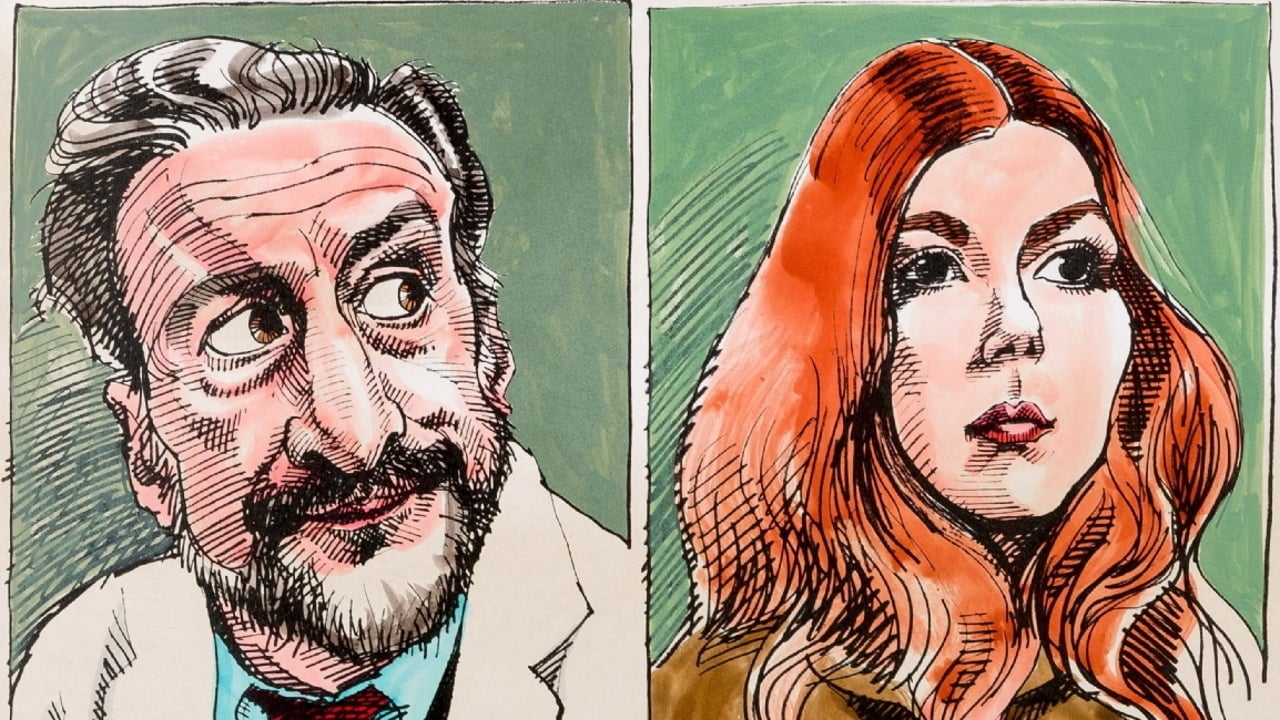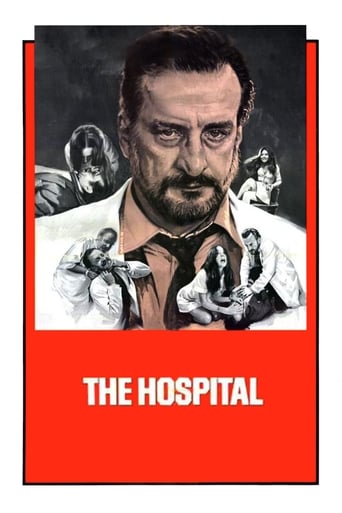

That was an excellent one.
... View MorePerfectly adorable
... View MoreThe story, direction, characters, and writing/dialogue is akin to taking a tranquilizer shot to the neck, but everything else was so well done.
... View MoreAll of these films share one commonality, that being a kind of emotional center that humanizes a cast of monsters.
... View MoreAn over-burdened doctor (George C. Scott) struggles to find meaning in his life while a murderer stalks the halls of his hospital.Although the film was not quite as funny as I think it could have been, it still has its moments and successfully makes a scathing attack on the medical system. Today (2017) the attack is no less potent, so the film has really stood the test of time. The writing is superb, and there is no surprise that it took home so many awards on the script.George C. Scott is excellent, as always, and Diana Rigg makes her American debut. Her character is unusually flaky and may not be to everyone's liking. The mystery aspect is quite fun, though it does not seem that enough clues are given for the audience to make any sort of informed guess.
... View MoreThis a fantastic movie, although I can't figure out why it's labeled as a "horror/something" story. There is absolutely nothing of a horror movie in "The Hospital"....Yes, some patients die, as mentioned in the storyline, and it has many elements of drama, but overall this is a dark, satirical comedy that is never scary but might have you rolling on the floor laughing your head off; in fact some scenes and dialogs I would describe as the funniest ever put in a movie (assuming you appreciate dark humor).The acting, vital in such a movie, is top notch, and the all-star cast does justice to one of the best, most intelligent Hollywood scripts ever written. It's quirky, darkly funny, thought-provoking, and it questions the very basis of our society, and our life, without ever being cheesy or preachy. All the characters, for better or for worse, feel extremely real, and yet they tread the edges of surreal, tragicomic events that, in turn, can take them (and us, the audience) to emotional places as diverse as hilarity, despair, and even optimism.I saw it for the first time many years ago, just bumped into it while channel-surfing, and couldn't turn it off until the end credits came up on the screen. I watched it again recently and found it just as powerful, funny and mesmerizing as that first viewing. If you love great cinema, and a drama with ideas instead of a transparent agenda, don't miss out on "The Hospital", it's a masterpiece.
... View MoreA hospital chief deals with a crisis while battling his own demons. This satire exaggerates situations to drive home its points, but it's a worthwhile black comedy. As with most of his films, Cheyefsky seems more interested in hitting his targets and pontificating than in telling a good story. The Scott character is similar to the William Holden character in "Network," a man with a failing marriage and suffering from menopause who has a chance to rekindle his manhood with a younger woman. Scott is quite good in conveying the middle-aged weariness and bitterness. Rigg is also fine as a hippie, but their instant love affair is not believable.
... View MoreHaving grown up on See No Evil, Hear No Evil, The Lonely Guy and The In-Laws, I'd never seen the true potential of Arthur Hiller as a director. The ultimate concern of Hiller, whose best film this arguably is by far, and Paddy Chayefsky, who wrote the high-spirited screenplay, is not the hospital but a class structure that has grown so complex that it allows people to be forgotten to death, and is so full of awful contradictions that only escape, by one means or another, seems rational.Hiller, who's a much better director than Carpool or An Alan Smithee Film: Burn Hollywood Burn could ever suggest, works beautifully with Chayefsky. It isn't just that he finds outstanding performances from George C. Scott and Diana Rigg, but he has impeccably cast the film down to roles that are so minor they rely as much on raw mannerism as on dramatic technique. And Hiller's camera is mobile, roaming the hospital corridors, helping to create a sense of action and movement, reflecting the chaos of confusion in the place.It starts as a comedy of errors, and one of the delicate things about that genre is its penchant for going out of control while endeavoring to outdo itself. Chayefsky has sidestepped this tidily by confining his absurd elements to a subplot while navigating his central story down a lingering, forlorn night with a bizarre doctor and an even more bizarre woman.The medical establishment working as a metaphor for American chaos, the movie begins with hospital scenes that appear to evoke the M*A*S*H gang in private practice. For a kickoff, a diabetic intern is ill-omened enough to fall asleep after scoring with a nurse on a hospital bed. He's presumed to be the bed's comatose patient, and is unintentionally killed by an intravenous food supply. Come morning, a nurse and two doctors will also depart, largely since they were wearing the incorrect ID bracelets at an unfortunate time.Administrating this disorder as chief of staff, Scott barely minds. He's left his wife, thrown his disheveled Marxist son out of the house, amuses suicidal daydreams, and splurges his nights in bleak unity with a quart of vodka. Throughout the first half of this black comedy about disillusionment, he's a character close to the cartoon caricature one might expect, but by midpoint, as the hospital disintegrates about him, a surprising thing occurs.He meets Rigg, a former SDS, acidhead and nurse who lives with her foolish father among a clan of Native Americans. She's there to guide the story into its languishing, desolate night, which includes some of Chayefsky's best non-Network writing.Unsuccessful in a suicide attempt as in, evidently, everything else, Scott hears the girl's story and then tells his own. Their monologues, told in the mutedly lit and anxiously closed-in doctor's office, exercise high-quality writing, acting and direction to shift the movie away from the comedy of errors du jour and into the night of terror that satire necessarily veils. Their meeting may seem initially like merely another case of Solitary Midlife Meets Right Youth, but soon it gets a lot more freshly complex than that.The morning after is teeming with half-baked spiritual revelations. Community activist protests and outlandish flukes that are clarified in rather tender flashbacks. It's here that we start longing again that Chayefsky and director Arthur Hiller had settled on farce, had let science yield the casualties, rather than art.However in a sense, the movie's conclusion is part of its splendor. If we were left thinking the hospital had unthinkingly and accidentally committed murder, we'd be back on the humanist panel in the campaign against knowledge. As it is, Chayefsky's strange and unforeseen ending proposes that people, even psychos, may always exploit the establishment for their own exclusive intent.
... View More